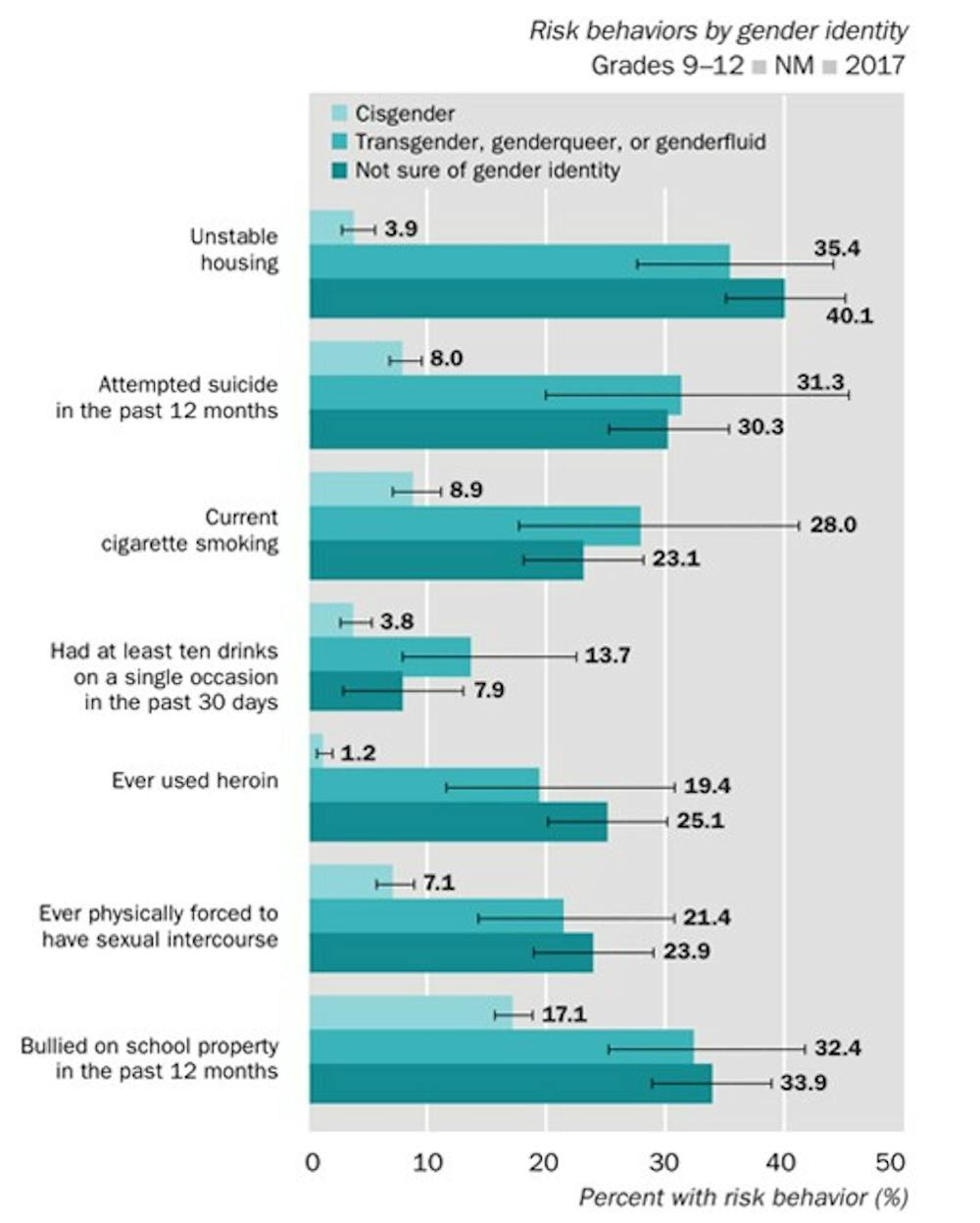One of the most vibrant nightclubs in Albuquerque transformed into a community classroom Sunday afternoon, complete with a presentation and true/false interactive quiz questions.
The Transgender Resource Center of New Mexico (TGRC) hosted the Trans 101 workshop in the Side Effex restaurant and bar. Adrien Lawyer, co-director of the TGRC, led the training, which included information about basic terms, definitions and concepts related to people who are transgender.
"A trans person has an internal gender — what they know to be true about their gender on the inside — that doesn't match up with the sex they were designated with at birth," Lawyer said.
He later explained that calling non-trans or cisgender people "normal" implies being transgender is not normal. Lawyer estimates that approximately 3% of the population is transgender and, historically, every population around the globe has had gender non-conforming and trans members.
"Non-binary is not new," Lawyer said. "We know that there are indigenous cultures (who) have words in their own indigenous languages for up to five different gender classifications for people — not two. The gender binary is actually a newer and more modern idea."
Lawyer said it's important for people who identify with the gender they were assigned at birth to identify themselves as cisgender.
"If you are not trans you are probably cis ... if you are cis and you don't like to be called cis, then I would ask to you to think more about that later. (Ask yourself) why is that upsetting?" said Lawyer.
He continued, "(cis) is not an insult — it is a value neutral term."
The training wasn't just about using language in a more supportive way. Lawyer also touched on the dangers that transgender people encounter on a daily basis.
Sylvia Rivera, a prominent Latina transgender rights activist from New York City, "lived on the street for much of her life," Lawyer said. "She was engaged in survival economies just trying to get by. She often had to hustle just to survive and still she thought a lot about — and put herself on the line for — the safety of other people."
"According to the results of (a) national transgender discrimination study, 16% of all transgender people are or have been involved in survival economies — such as sex work or drug trade," reported Matthew Bakko in his 2018 Sexuality Research and Social Policy study. "In comparison to other transgender people, those involved in survival economies experience nearly double the rate of unemployment, homelessness, drug use, HIV infection and suicide attempts."
Every two years, the New Mexico Department of Health and the Public Education Department — with technical assistance from the University of New Mexico Prevention Research Center — conduct a survey of public high school students about risk behaviors and resilience (protective) factors.
Get content from The Daily Lobo delivered to your inbox
The most recent survey revealed grim outcomes for young transgender people in New Mexico.
"Compared to cisgender students, those who identified as transgender, genderqueer or genderfluid, or were not sure of their gender identity, were at a much higher risk for housing instability, suicidal behaviors, substance use and being victims of bullying and sexual violence," the 2017 survey said.
Lawyer said he hoped that in the next 50 years, being transgender will be seen as other minority populations like being left-handed or red-headed.
The TGRC Drop-In Center is open Monday through Friday from 1-6 p.m. They offer free meals, clothes, confidential HIV testing, syringe exchange, support groups and a computer lab for gender non-conforming people.
Lissa Knudsen is a public health beat reporter at the Daily Lobo. She can be contacted at news@dailylobo.com or on Twitter @lissaknudsen






